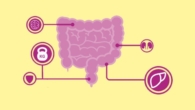
5 mental disorders that residents of big cities suffer from
0
Increased stress, sensory, emotional and mental stress, the inability to relax is just an ideal ground for mental disorders.
Life in a big city is great and interesting and offers many opportunities. But there is also a reverse side: high rhythm of life, constant stress, inability to stop, exhale and even relax a little — all this creates excellent conditions for the development of various diseases, including mental ones. We tell what disorders residents of big cities are most prone to, how to recognize diseases in the early stages and what to do to keep the psyche healthy and strong.
Chronic fatigue syndrome
Residents of big cities are especially prone to chronic fatigue syndrome, as well as those who are constantly faced with increased responsibility for the lives and well-being of other people and constantly experience increased emotional stress. The disease develops gradually, the first symptoms are usually attributed to fatigue and a general lack of energy. The development of the disease can be provoked by transmitted viral diseases (including common flu), life in an unfavorable social and environmental environment, as well as severe or prolonged stress.
But if time passes and you still cannot rest and come to your senses, most likely you have “caught” chronic fatigue syndrome. Here are other signs that will help recognize the disease:
- Muscle weakness;
- Photophobia;
- Nausea or vomiting after exercise;
- Problems with concentration;
- Inflamed lymph nodes ;
- Failures in memory;
- Pains in muscles and joints;
- Insufficient deep sleep.
Anxiety disorder
If you live in a big city and are a woman, you have a particularly high risk of experiencing this disorder at least once in your life. It is important to see a doctor as soon as possible, as an advanced anxiety disorder can lead to burnout and even depression.
Here are the symptoms to look out for:
- Constant feelings of anxiety and anxiety that interferes with daily life;
- Sleep problems;
- Concentration problems;
- Irritability;
- Sudden attacks of fear;< /li>
- Intrusive thoughts about trouble and/or death.
Depression
Triggers that “trigger” the development of depression are constant stress, lack of sleep, emotional and physical overload. In general, everything that makes up the everyday life of a city person. Depression is a dangerous and insidious disease, you can be sick and not even suspect it. It is important to remember that depression is not depravity, not laziness, not a whim, from which you can “shudder just by taking yourself in hand.” This is a dangerous, sometimes fatal disease that requires treatment and medical supervision. Here are some symptoms that may indicate you are depressed:
- Increased irritability;
- Abnormally early awakenings;
- Loss or decrease of interest in usual activities and hobbies;
- Constant sitting on social networks;
- Constant back or lower back pain;
- Loss of appetite;
- Difficulty making decisions.
Agarophobia< /h2>
This is a condition in which a person feels uncomfortable in open and large spaces. The development of this phobia can be provoked by prolonged or frequent stress, increased stress, both mental and physical, as well as prolonged loneliness and a lack of emotional communication. Signs that you need to see a doctor as soon as possible:
Uncomfortable, anxious feeling from an open space or a large crowd of people. You should pay particular attention to your health if these feelings appeared recently, and before that nothing similar bothered you.
Addiction
The simplest (but does not mean that an effective) way to cope with anxiety is to ask for it, eat or smoke. Unfortunately, this most often leads to the development of addiction (alcohol, nicotine or food), eating disorders, as well as the formation of other painful addictions – for example, to social networks or games. A red flag warning that you should seek help is the inability to spend a long time (from several days to several weeks) out of contact with the subject of possible addiction, increased irritability, fading of social contacts, mood changes.









Leave a Reply